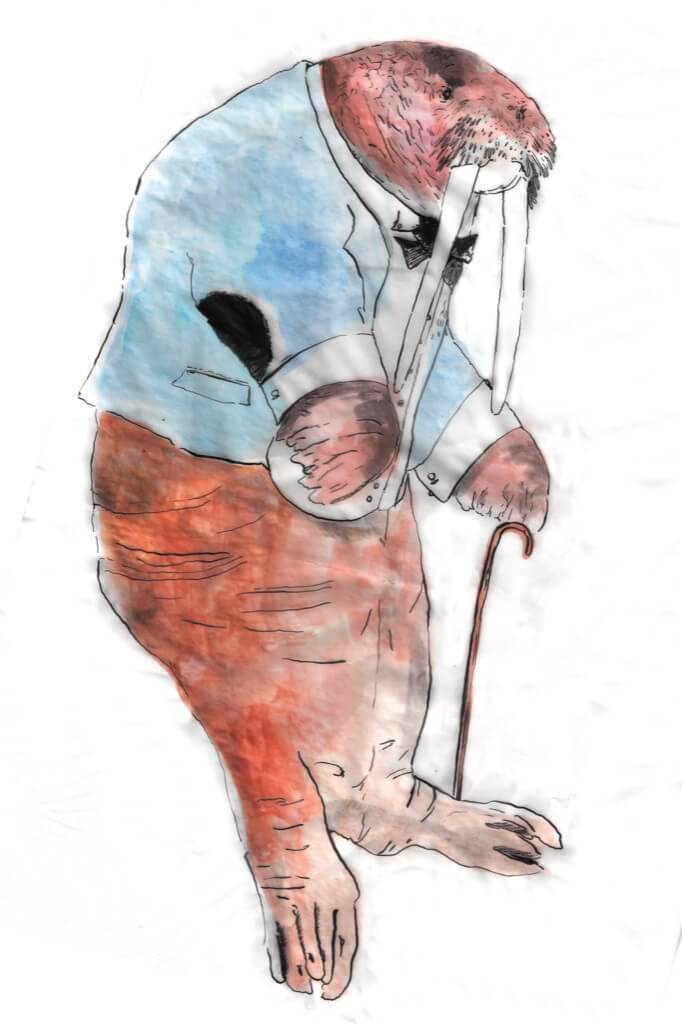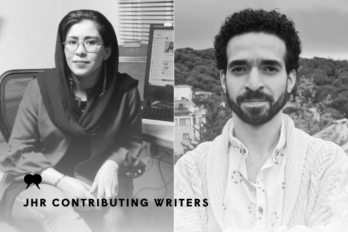On October 1, 2003, on a terrace overlooking Manhattan, the editor of Vanity Fair, Graydon Carter, asked David Berlin, the founding editor of Canada’s newest magazine, “Why The Walrus? ” The answer: “No one ignores a walrus.”
The occasion was a party hosted by the country’s New York consul general, Pamela Wallin, celebrating the launch of the most hotly anticipated Canadian magazine in decades. The first issue hadn’t yet been published, but the press coverage was already over the top. David Berlin and co-founder Ken Alexander were quoted everywhere: The Walrus, they said, would be the Harper’s of the North, with a little New Yorker, Atlantic, and Economist on the side. It would be committed to ideas and long-form journalism. It would be witty, thoughtful, fearless, Canadian.
The founders saw their fledgling magazine as an optimistic national project for which Canadians were hungry. They weren’t surprised when the first issue arrived on the newsstands and sold out overnight. Yet many observers said the magazine would not—could not—survive. Not in a country with a population as small as Canada’s. “Nice idea,” the founders were told over and over again, “but it won’t work.”
You hold in your hands the fifth anniversary edition of The Walrus. The cover, by Douglas Coupland (whose work also appeared in the magazine’s debut issue), is a collage of images from our first fifty issues. Over the past five years, under the editorial leadership of Berlin, Paul Wilson, Alexander, and creative director Antonio De Luca, The Walrus won more National Magazine Awards than any other magazine in Canada and was the country’s 2007 magazine of the year. In five short years, its circulation has grown to some 60,000. To put that in perspective, Harper’s—in that much larger market to the south—has just 215,000 paying customers, and it’s over 150 years old.
For this remarkable achievement, a huge debt of gratitude is owed to editors David Berlin, Paul Wilson, and Ken Alexander. Together they assembled a team that included Bernard Schiff (who followed Alexander as publisher), and a small army of talented, passionate, resourceful editors, art directors, contributors, interns, and dedicated board and advisory council members.
But The Walrus would not be celebrating this anniversary were it not for the Chawkers Foundation, by far the magazine’s largest financial supporter, and for you, the magazine’s loyal reader. Without your appetite for quality journalism, without your enthusiastic encouragement (proof, if any were needed, that this country needs and wants The Walrus), it would not have survived.
Not that the magazine’s future is guaranteed. Because Canada is a small country, and because a magazine with such lofty aspirations can appeal to only a tiny fraction of the population, The Walrus will always require—in addition to advertising and circulation revenue—a third revenue stream: fundraising. This is why it is published by the non-profit Walrus Foundation.
We borrowed this model from Harper’s, which is published by the MacArthur Foundation and has a sizable endowment, as we hope The Walrus will someday. In the meantime, we are broadening our support to include individual donors, other foundations, corporate sponsorship, and public sector grants. Happily, more and more people are realizing that the magazine’s reliance on charitable funding is not a sign of weakness. Arts organizations require charitable funding. Public broadcasters require charitable funding. The Walrus’s dependence on charitable funding acknowledges nothing more than how high it has aimed.
And will continue to aim. With your support, and that of other benefactors we have yet to win over, we will continue to produce a thoughtful magazine about Canada and its place in the world. A magazine that endeavours to inform, amuse, and entertain its readers with powerful—and educational—writing, photography, and illustration. This is indeed an optimistic project. Making so ambitious a magazine sustainable is bound to be a struggle. But if we can build on the achievements of our first five years, there is no reason to believe we cannot succeed. We hope The Walrus will continue to earn your time, attention, and support. We hope it will always be hard to ignore.





